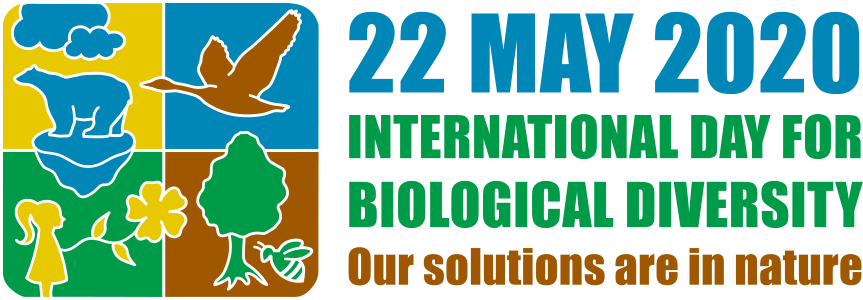Biodiversity is a word that describes the variety of life in an area. This includes all the species of plants, animals and microscopic organisms! It is easy to underestimate how many species can exist in a seemingly small area; there are around 70,000 species in the UK alone. The United Nation’s International Day for Biological Diversity celebrated its 25 year anniversary in 2018 and during its life it has explored a mixture of themes including: Biodiversity and Sustainable Tourism, Forest Biodiversity and Biodiversity and Poverty Alleviation.
So, why is biodiversity important and why should we work to protect it? Biodiversity impacts us in more ways than we think; insects that pollinate provide us with fruits and vegetables, medical discoveries often come from species outside of ourselves and many rely on functioning ecosystems for fresh water. The UK’s (and the world’s) Biodiversity is declining at an alarming rate and we are now in what scientists are calling the Earth’s 6th mass extinction, caused both directly and indirectly by human activities. In the UK alone, we have lost 56% of farmland birds between 1970-2015, the equivalent of at least 44 million individuals. In Germany, since 1989 the number of flying insects seen on nature reserves has dropped by 76%, and similar figures can be taken from every country around the world.

This year’s theme is ‘Our solutions are in nature’, which emphasises ‘hope, solidarity and the importance of working together at all levels to build a future of life in harmony with nature’. During the COVID-19 pandemic is has become apparent that despite the many technological advances across the world, we are completely dependent on biodiversity and healthy ecosystems for things such as water, food, medicines and fuel.
There are huge projects being undertaken by environmental initiatives across the world to help combat this problem- but you can do your bit at too!
Live a sustainable life
Living as sustainably as is practical for you and your family can help. For example, using less paper can reduce the need for deforestation and buying organic fruits and vegetables means that you won’t be contributing to the use of pesticides that kill insects.
Buy good wood
Next time that you buy a wooden product make sure that it is FSC certified, this means that it is sustainably sourced and won’t contribute to deforestation.
Buy sustainable seafood
80% of the world’s biodiversity lives in the sea, and that’s just those that we have discovered! Overfishing is causing a steep decline in our ocean’s biodiversity, buying sustainable seafood means that you aren’t contributing to this industry.
Add biodiversity to your garden
Attract birds to your garden by ensuring there is a sheltered area for them and provide food. Plant flowers that attract bees and other pollinators such as sunflowers, lavender and marigolds. If you only have a small outdoor space such as a balcony use a planter to grow some herbs such as chives, mint or rosemary.
Join the Green Campus Group
Join fellow staff and students in our Green Campus Group, the purpose of which is to share information and engage with the University community about the current and potential use of outside spaces at the University and how they will and could be developed and enhanced. You can join the Microsoft Teams group and we are next meeting virtually on Friday 5th June at 11am to find out about the Hedgehog Friendly Campus programme. Register here.
Find out more about International Day for Biodiversity at: www.cbd.int/idb/